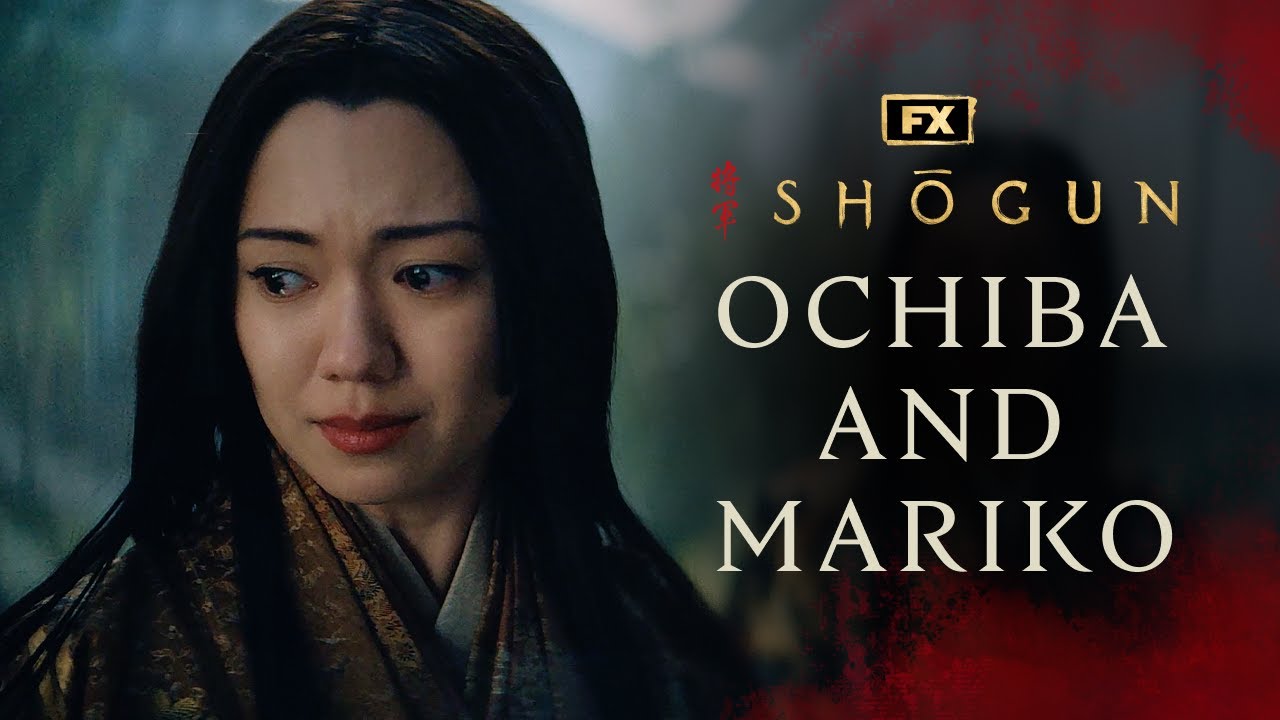Lady Ochiba Reflects on Mariko’s Past – Scene | Shōgun | FX
“Flowers are only flowers because they fall.” 😮💨 The way this line shook us to our core. FX’s Shōgun is now streaming on Hulu.
Shōgun, Episode 9.
Subscribe now for more Shōgun clips: http://bit.ly/SubscribeFX | Visit Official Site http://www.fxnetworks.com/shows/shogun
#Shogun #FX
Based on James Clavell’s novel, FX’s Shōgun is set in Japan in the year 1600 at the dawn of a century-defining civil war. Lord Yoshii Toranaga is fighting for his life as his enemies on the Council of Regents unite against him, when a mysterious European ship is found marooned in a nearby fishing village.
Like FX on Facebook: http://bit.ly/FXNetworksFacebook
Follow FX on Twitter: http://bit.ly/FXNetworksTW
Follow FX on Instagram: http://bit.ly/FXNetworksInstagram
Lady Ochiba Reflects on Mariko’s Past – Scene | Shōgun | FX
https://www.youtube.com/user/FXNetworks


43 Comments
This conversation is just 💔
Anna Sawai and Fumi Nikaido are great in their roles . I think this show deserve a lot of praise , because the entire cast gives strong performances across the series ⚔️⚔️⚔️⚔️⚔️ .
Mariko is just so dame fine!!
We haven't heard from the actress playing Lady Ochiba. I would love to hear her perspective on her role and on this scene.
🥺💔
Poor John, he’s ready to bolt out of there away from the drama.
Anjin: If i play my cards right theres a potential 3 way here
It’s sad that the show is over. But It’s better it ends perfectly like this instead of forcing a second season. And even if there was a second book by Clavell, most of the characters that made me love this show are gone already…
Lady Ochiba is based on the real-life Yodo-dono.
I love how Ochiba’s character developed. At first, she appeared to be purely cold and ruthless.
Ochiba is HOT
Now english speaker taste a bit what's like to be non english speaker… READ THAT SUBTITLE!!!
One thing I still dont understand is why would Ochiba take Toranaga’s side just because of Mariko’s death? It makes no sense.
In order to truly understand Japanese movies and dramas, it is necessary to learn Japanese. Because Japanese has a variety of ways of saying things in the first, second, and third person, and changes can be made depending on subtle exchanges during conversation. The English translation is just I, you, and they.
Its funny that John just bolted outta there😅when Mariko said We should go now, like no bowing im done with this drama😂
『散りぬべき時知りてこそ世の中の花も花なれ人も人なれ(Flowers are beautiful because they know when they should fall. People should be like that.)』
4:39 This line of Mariko is a quote from the farewell poem of Hosokawa Gracia, who is said to be the model for Mariko. This old farewell poem, which is more than 400 years old, is still loved by many Japan people living in the present day. This farewell poem beautifully explains why Japan people have loved the fall of cherry blossoms since ancient times. I would like to write down here the farewell poem that Hosokawa Gracia left in this world.
Great scene, too bad they kind of ruined Ochiba's character in the end, especially considering the actual historical events that transpired afterwards.
One of the best scene ❤ fumi just nailed it with one drop of tear
At 0:42 Love how you can see Ochiba's face soften when she sees Mirako
Brilliant…..just brilliant 👌
I don't quite understand the part why Mariko said to Ochiba "Aren't you tired of this?" and why Mariko said Ochiba is a 'leafless branch'?
I so wish that I could understand the dialogue without the subtitles, because reading them really detracts from admiring the framing, scenery and lighting. But there is NO way I'd request dubbing.
same flawed thinking as the film Troy where Achilles speaks of envious gods…. such discourse exists in our fiction not without reason…
The Oda clan would agree that warmongering, and usurping the place of the "rightful heir" is dishonorable, as would the Ashikaga, as would the Emperor, as would many, many others.
散りぬべき時知りてこそ
世の中の
花も花なれ人も人なれ
この世の花は散り際を心得ているからこそ
美しいのです。
花は散るがゆえに花なのです。
花もまた
わかれん春は思ひ出でよ
咲き散るたびの心づくしを
Is this conversation in the book? I don't remember it.
Davis Jose Smith Kimberly Jones Jennifer
"Flowers are only Flowers cause they Fall." Such poinyet beautiful sentiment.🌸
Beautiful & Historical Japanese Culture is Wonderful‼️‼️😊😊👍👍㊗️㊗️㊗️
I have one request.
I would like you to depict the turmoil at the end of the Edo period as THE LAST SHOGUN, based on the diaries of British Minister Allcock or Ernest Sato.
I would be happy if Shoin Yoshida and Sanai Hashimoto were included as well.
Takao Kawamura, Shimada City, Shizuoka Prefecture
「花は散るが故に花なのでござりまする。」
桜の花が一年中咲いていたら、日本人は桜の花を賞でる事は無いでしょう。刹那咲き誇り、数日経てば散ってしまう。武士道に通じるものがあるからこそ、日本人は桜の花を賞でる。
“Flowers are only flowers because they fall”
If cherry blossoms bloomed year-round, we Japanese people would never appreciate them. They bloom fleetingly and fall within days. It is because this fleeting beauty resonates with the spirit of Bushido that the Japanese people admire the cherry blossoms.
One of my favorite scenes in the show.
Why they speak Japanese like that? To sound like attractive to American audiences?
4:03 ココすげぇ
As I watched the series all over again. I realize that Lady Ochiba really was cunning. He was like a cold-blooded serpent. Tamed, yet cunning. And the way she talks and moves really is like that of a serpent that slithers. Then you got Mariko who's like a caged hawk longing for flight to spread her wings.
Now I understand why Shogùn won all the major Emmy awards! Love it!❤❤❤
How the Japanese language sounds is amazing!!! I would love to be able to speak it!!!
I love how Blackthorne just started walking when she said it was time to go.
I'm Japanese, but this drama has many classical phrases that I can't understand, so I watch it with English subtitles to help….LOL anyway, it's authentic and interesting!
In period dramas, there are several archaic expressions that correspond to ‘you.’ Each of these terms is used differently depending on the relationship with the other person and the level of respect. Below are some representative examples:
1. Sonata: A formal and old-fashioned term. It is often used to address someone of equal or higher status, showing respect and familiarity.
2. Sochi: A slightly more casual version of ‘sonata,’ used to address subordinates or those of lower status, with a sense of familiarity.
3. Onushi: Often used to address friends, companions, or sometimes subordinates. It conveys a sense of familiarity when speaking to the other person.
4. Kisama: While it has a derogatory meaning in modern language, in period dramas, it was once used to show respect. It is often used to address subordinates or in strict situations.
5. Temae: Although it may sound insulting today, in period dramas, it was used as either a first or second person pronoun and did not necessarily imply disrespect.
These expressions reflect the hierarchical relationships and etiquette between characters in period dramas, adding a unique atmosphere to the story.
Ochiba’s actress is well known in jdramas
足軽と織田信長の結婚。相当屈辱であったと思う。
農民の徴収兵の話し。